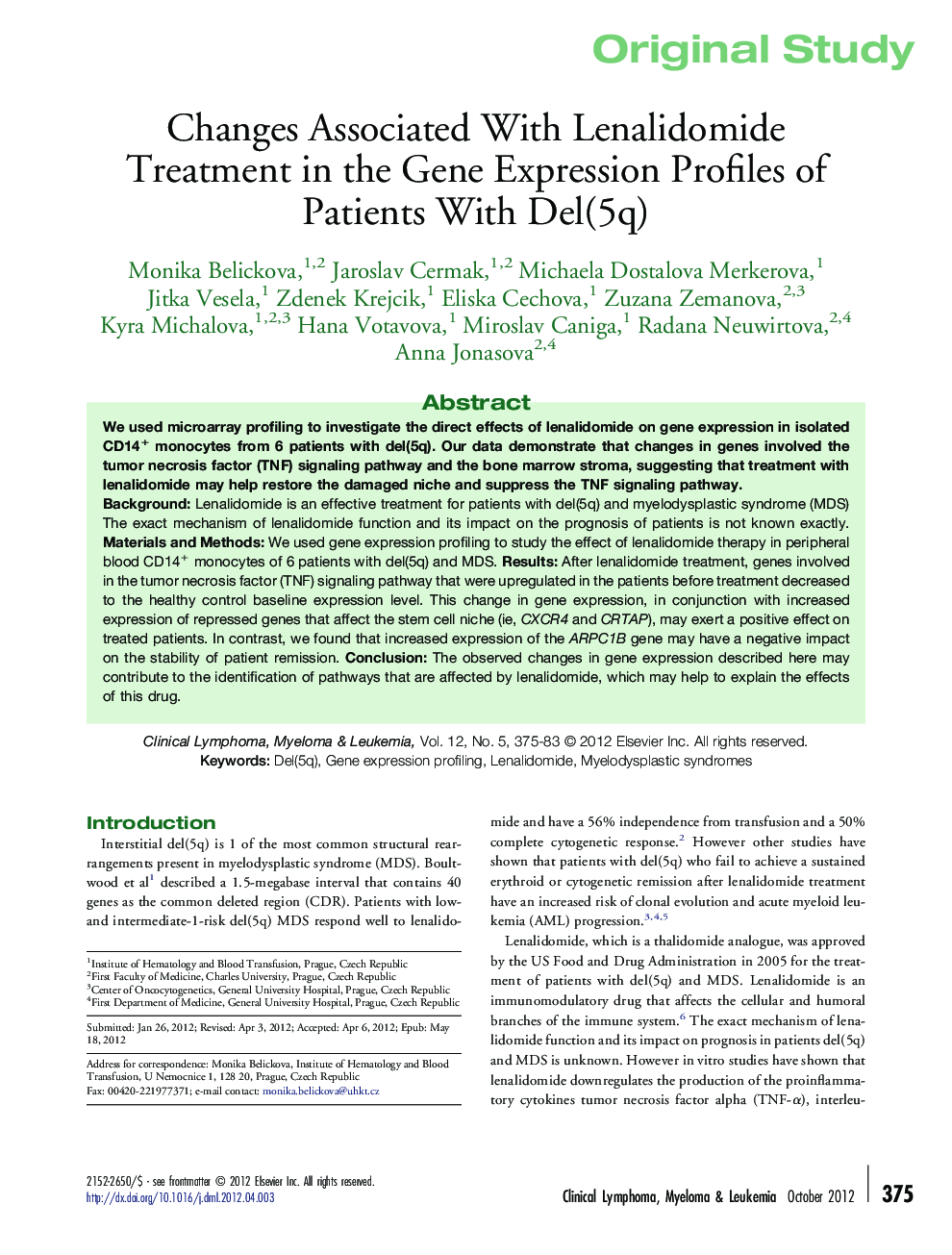| Article ID | Journal | Published Year | Pages | File Type |
|---|---|---|---|---|
| 2755260 | Clinical Lymphoma Myeloma and Leukemia | 2012 | 9 Pages |
BackgroundLenalidomide is an effective treatment for patients with del(5q) and myelodysplastic syndrome (MDS) The exact mechanism of lenalidomide function and its impact on the prognosis of patients is not known exactly.Materials and MethodsWe used gene expression profiling to study the effect of lenalidomide therapy in peripheral blood CD14+ monocytes of 6 patients with del(5q) and MDS.ResultsAfter lenalidomide treatment, genes involved in the tumor necrosis factor (TNF) signaling pathway that were upregulated in the patients before treatment decreased to the healthy control baseline expression level. This change in gene expression, in conjunction with increased expression of repressed genes that affect the stem cell niche (ie, CXCR4 and CRTAP), may exert a positive effect on treated patients. In contrast, we found that increased expression of the ARPC1B gene may have a negative impact on the stability of patient remission.ConclusionThe observed changes in gene expression described here may contribute to the identification of pathways that are affected by lenalidomide, which may help to explain the effects of this drug.
